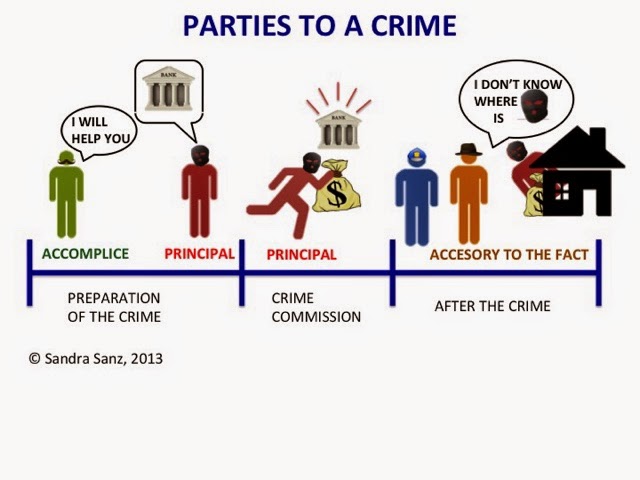Philippine AIDS Prevention and Control Act of 1998
| An image grabbed from Bing IMAGES |
As reported recently by the Department of Health, there are almost 500 new cases of the human immunodeficiency virus (HIV) - which could lead to the fatal Acquired Immune Deficiency Syndrome (AIDS), the highest number recorded I one month, the department said on Thursday (May 1, 2014). For more information about this news, you may read its entirety at http://newsinfo.inquirer.net/598960/march-saw-biggest-spike-in-hiv-cases#ixzz30dZOrwrI.
Acquired Immune Deficiency Syndrome (AIDS) is a disease that recognizes no territorial, social, political and economic boundaries for which there is no known cure, thus, it is the duty of the State to prevent and control the spread of this disease.
In this connection, the government has enacted a law for the purpose of preventing and controlling the spread of AIDS. This law is Republic Act Number 8504 or otherwise known as the Philippine AIDS Prevention and Control Act of 1998.
What are the salient features of this R.A. No. 8504?
In order to prevent the spread of the disease, there must be massive information and educational campaign about it. As provided in the law, the education and information shall be:
1. HIV/AIDS education in schools
2. HIV/AIDS information as a health service
3. HIV/AIDS education in the workplace
4. HIV/AIDS education for Filipinos going abroad
5. Information campaign for tourists and transients
6. HIV/AIDS education in communities
7. Information on prophylactics
In the course of information dissemination, any misinformation on HIV/AIDS prevention and control through FALSE and MISLEADING advertising and claims in any of the tri-media or the promotional marketing of drugs, devices, agents or procedures without prior approval from the Department of Health and the Bureau of Food and Drugs and the requisite medical and scientific basis, including markings and indications in drugs and devises or agents, purporting to be a cure or a fail-safe prophylactic for HIV infection is punishable with a penalty of imprisonment for two (2) months to two (2) years, without prejudice to the imposition of administrative sanctions such as fines and suspension or revocation of professional or business license.
What are the safe practices and procedures embodied in this law?
1. Requirement on the donation of blood, tissue, or organ. — No laboratory or institution shall accept a donation of tissue or organ, whether such donation is gratuitous or onerous, unless a sample from the donor has been tested negative for HIV. All donated blood shall also be subjected to HIV testing and HIV(+) blood shall be disposed of properly and immediately. A second testing may be demanded as a matter of right by the blood, tissue, or organ recipient or his immediate relatives before transfusion or transplant, except during emergency cases: Provided, That donations of blood, tissue, or organ testing positive for HIV may be accepted for research purposes only, and subject to strict sanitary disposal requirements.
2. Guidelines on surgical and similar procedures. — The Department of Health (DOH), in consultation and in coordination with concerned professional organizations and hospital associations, shall issue guidelines on precautions against HIV transmission during surgical, dental, embalming, tattooing or similar procedures. The DOH shall likewise issue guidelines on the handling and disposition of cadavers, body fluids or wastes of persons known or believed to be HIV-positive.
The necessary protective equipment such as gloves, goggles and gowns, shall be made available to all physicians and health care providers and similarly exposed personnel at all times.
What are the penalties for unsafe practices and procedures in violation of this Act?
Any person that would violate this provision on safe and practices provided by this law shall suffer a penalty of imprisonment for six (6) years to twelve (12) years, without prejudice to the imposition of administrative sanctions such as, but not limited to, fines and suspension or revocation of the license to practice his/her profession. The permit or license of any business entity and the accreditation of hospitals, laboratory, or clinics may be cancelled or withdrawn if said establishments fail to maintain such safe practices and procedures as may be required by the guidelines to be formulated in compliance with Sec. 13 of this Act.
Is it compulsory to require for a person suspected to have infected with HIV virus to have HIV testing?
No, it is not compulsory. As provided in this Act, no compulsory HIV testing shall be allowed. Consent is a requisite for HIV testing.
Is consent still needed for individuals with a high risk for contracting HIV?
Yes, it is still a requisite. However, the State shall encourage voluntary testing for individuals with a high risk for contracting HIV.
When is lawful consent be considered as having been given?
Lawful consent to HIV testing of a donated human body, organ, tissue, or blood shall be considered as having been given when:
- (a) a person volunteers or freely agrees to donate his/her blood, organ, or tissue for transfusion, transplantation, or research;
(b) a person has executed a legacy in accordance with Sec. 3 of Republic Act No. 7170, also known as the "Organ Donation Act of 1991";
(c) a donation is executed in accordance with Sec. 4 of Republic Act No. 7170.
Is compulsory HIV testing as a precondition to employment, admission to educational institutions, the exercise of freedom of abode, entry or continued stay in the country, or the right to travel, the provision of medical service or any other kind of service, or the continued enjoyment of said undertaking lawful?
No, it is not lawful.
In what instances the compulsory HIV testing is required?
Compulsory HIV testing may be allowed only in the following instances:
- a) When a person is charged with any of the crimes punishable under Articles 264 and 266 as amended by Republic Act No. 8353, 335 and 338 of Republic Act No. 3815, otherwise known as the"Revised Penal Code" or under Republic Act No. 7659;
b) When the determination of the HIV status is necessary to resolve the relevant issues under Executive Order No. 309, otherwise known as the "Family Code of the Philippines"; and
c) When complying with the provisions of Republic Act No. 7170, otherwise known as the "Organ Donation Act" and Republic Act No. 7719, otherwise known as the "National Blood Services Act".
What does the State shall provide and guarantee in HIV testing?
The State shall provide a mechanism for ANONYMOUS HIV testing and shall guarantee ANONYMITY and MEDICAL CONFIDENTIALITY in the conduct of such tests.
CONFIDENTIALITY
All health professionals, medical instructors, workers, employers, recruitment agencies, insurance companies, data encoders, and other custodians of any medical record, file, data, or test results are directed to strictly observe confidentiality in the handling of all medical information, particularly the identity and status of persons with HIV.
Exceptions to the mandate of confidentiality. — Medical confidentiality shall not be considered breached in the following cases:
- (a) when complying with reportorial requirements in conjunction with the AIDSWATCH programs provided in Sec. 27 of this Act;
(b) when informing other health workers directly involved or about to be involved in the treatment or care of a person with HIV/AIDS: Provided, That such treatment or care carry the risk of HIV transmission: Provided, further, That such workers shall be obliged to maintain the shared medical confidentiality;
(c) when responding to a subpoena duces tecum and subpoena ad testificandum issued by a Court with jurisdiction over a legal proceeding where the main issue is the HIV status of an individual: Provided, That the confidential medical record shall be properly sealed by its lawful custodian after being double-checked for accuracy by the head of the office or department, hand delivered, and personally opened by the judge: Provided, further, That the judicial proceedings be held in executive session.
All results of HIV/AIDS testing shall be confidential and shall be released only to the following persons:
- (a) the person who submitted himself/herself to such test;
(b) either parent of a minor child who has been tested;
(c) a legal guardian in the case of insane persons or orphans;
(d) a person authorized to receive such results in conjunction with the AIDSWATCH program as provided in Sec. 27 of this Act;
(e) a justice of the Court of Appeals or the Supreme Court, as provided under subSec. (c) of this Act and in accordance with the provision of Sec. 16 hereof.
Penalties for violations of confidentiality. — Any violation of medical confidentiality as provided in Sec.s 30 and 32 of this Act shall suffer the penalty of imprisonment for six (6) months to four (4) years, without prejudice to administrative sanctions such as fines and suspension or revocation of the violator's license to practice his/her profession, as well as the cancellation or withdrawal of the license to operate any business entity and the accreditation of hospitals, laboratories or clinics.
Disclosure to sexual partners. — Any person with HIV is obliged to disclose his/her HIV status and health condition to his/her spouse or sexual partner at the earliest opportune time.
DISCRIMINATORY ACTS AND POLICIES
Discrimination in the workplace. — Discrimination in any form from pre-employment to post-employment, including hiring, promotion or assignment, based on the actual, perceived or suspected HIV status of an individual is prohibited. Termination from work on the sole basis of actual, perceived or suspected HIV status is deemed unlawful.
Discrimination in schools. — No educational institution shall refuse admission or expel, discipline, segregate, deny participation, benefits or services to a student or prospective student on the basis of his/her actual, perceived or suspected HIV status.
Restrictions on travel and habitation. — The freedom of abode, lodging and travel of a person with HIV shall not be abridged. No person shall be quarantined, placed in isolation, or refused lawful entry into or deported from Philippine territory on account of his/her actual, perceived or suspected HIV status.
Inhibition from public service. — The right to seek an elective or appointive public office shall not be denied to a person with HIV.
Exclusion from credit and insurance services. — All credit and loan services, including health, accident and life insurance shall not be denied to a person on the basis of his/her actual, perceived or suspected HIV status: Provided, That the person with HIV has not concealed or misrepresented the fact to the insurance company upon application. Extension and continuation of credit and loan shall likewise not be denied solely on the basis of said health condition.
Discrimination in hospitals and health institutions. — No person shall be denied health care service or be charged with a higher fee on account of actual, perceived or suspected HIV status.
Denial of burial services. — A deceased person who had AIDS or who was known, suspected or perceived to be HIV-positive shall not be denied any kind of decent burial services.
Penalties for discriminatory acts and policies. — All discriminatory acts and policies referred to in this Act shall be punishable with a penalty of imprisonment for six (6) months to four (4) years and a fine not exceeding Ten thousand pesos (P10,000.00). In addition, licenses/permits of schools, hospitals and other institutions found guilty of committing discriminatory acts and policies described in this Act shall be revoked.


Comments
Post a Comment